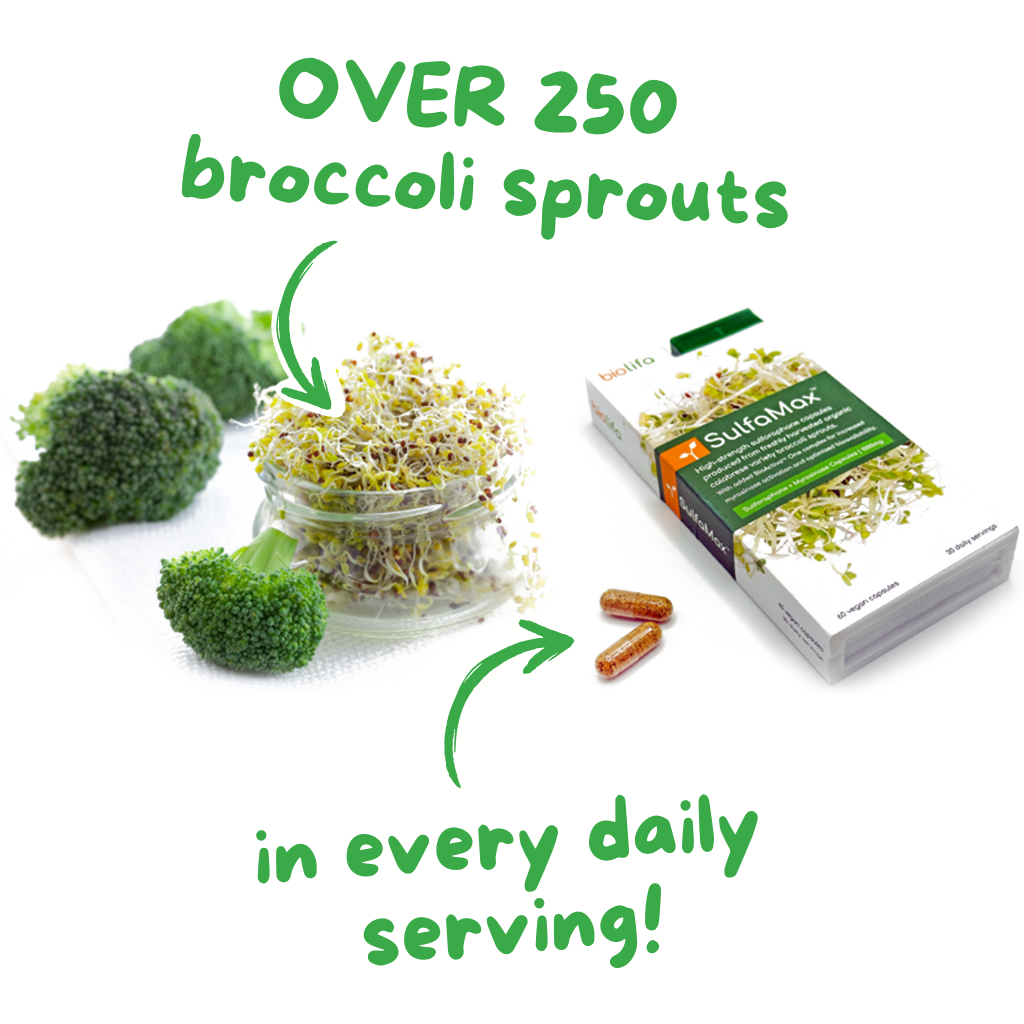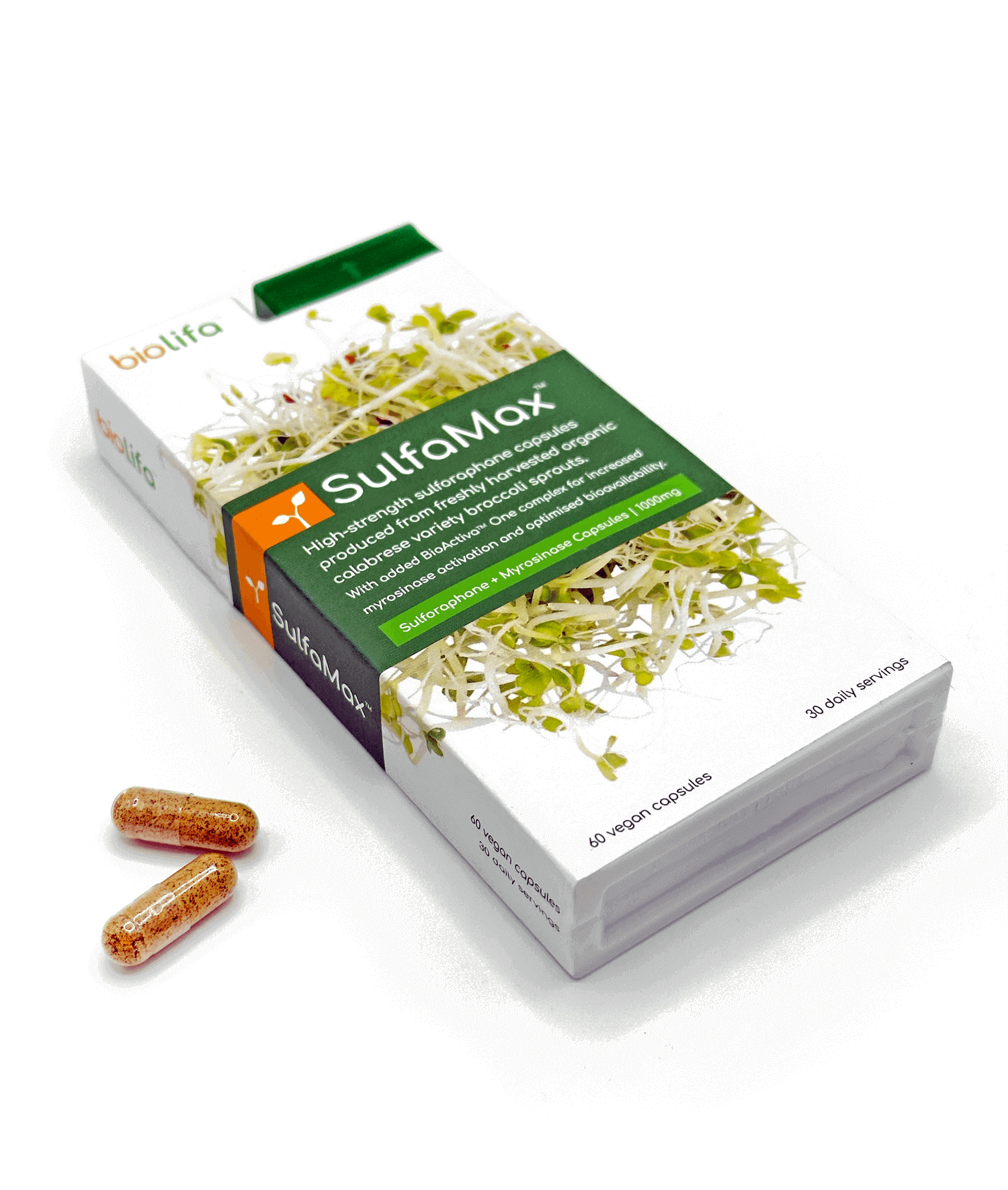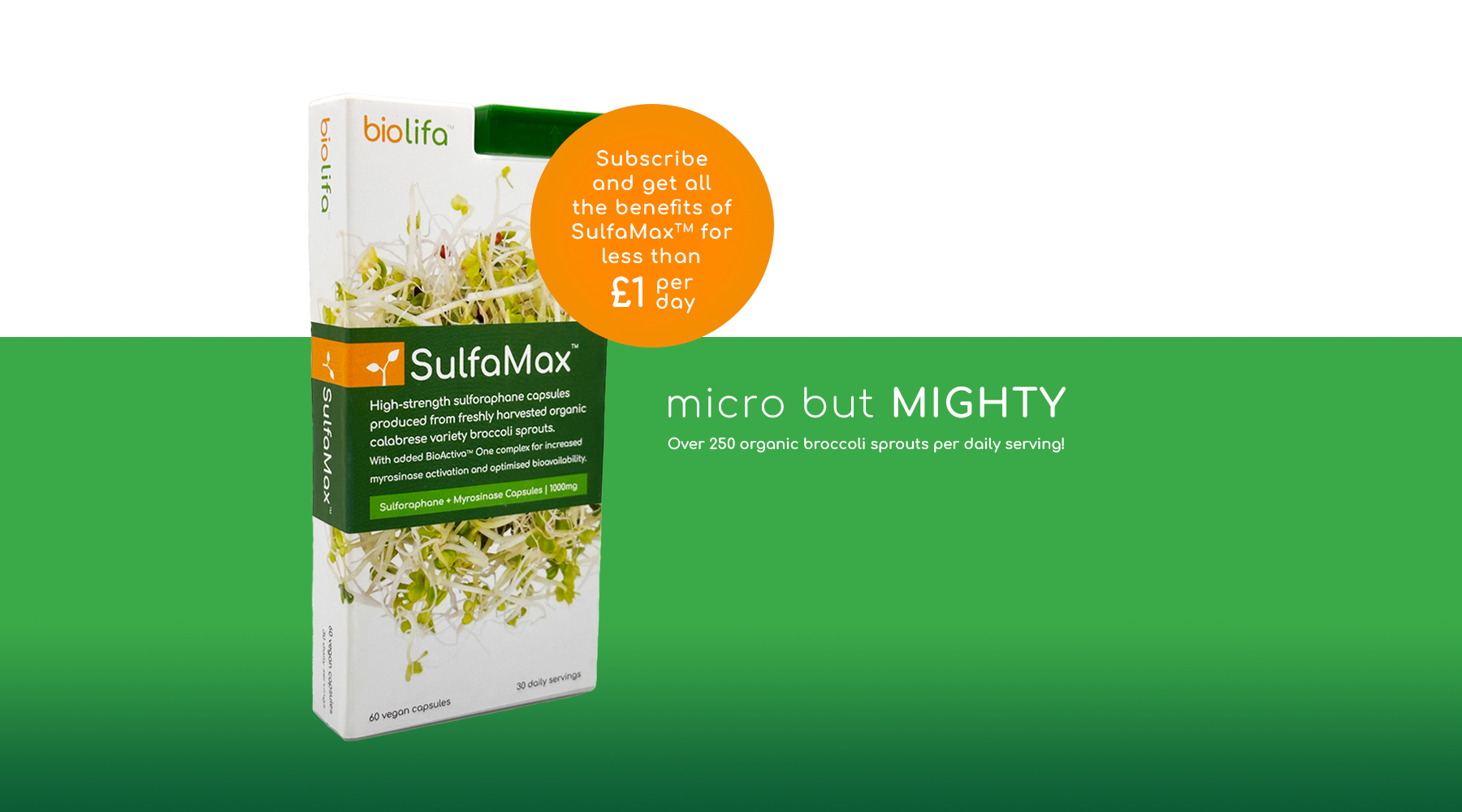Sulforaphane has been the subject of numerous scientific studies in recent years, and researchers have found that sulforaphane has many health benefits, including improving eye health. In this article, we will explore the ways in which sulforaphane can benefit your eyes and how you can incorporate it into your diet.
What is Sulforaphane?
Sulforaphane is a sulfur-containing compound found in cruciferous vegetables. It is produced when a compound called glucoraphanin comes into contact with an enzyme called myrosinase. Myrosinase is found in cruciferous vegetables and is activated when the vegetables are cut, chewed, or crushed. When myrosinase comes into contact with glucoraphanin, it breaks it down into sulforaphane.
How Does Sulforaphane Benefit Eye Health?
- Protects Against UV Damage
The eyes are constantly exposed to UV radiation, which can cause damage to the cells in the eye and increase the risk of developing eye diseases like cataracts and age-related macular degeneration (AMD). Sulforaphane has been shown to protect against UV damage by activating a protein called Nrf2, which regulates the body's response to oxidative stress.
- Reduces Inflammation
Chronic inflammation is a key factor in the development of many eye diseases, including AMD and glaucoma. Sulforaphane has been found to have anti-inflammatory properties and can help to reduce inflammation in the eyes.
- Improves Retinal Function
The retina is the part of the eye that is responsible for detecting light and transmitting visual information to the brain. As we age, the function of the retina can decline, leading to vision problems. Sulforaphane has been found to improve retinal function and protect against age-related decline in vision.
- Helps to Prevent Cataracts
Cataracts are a common eye condition that occurs when the lens of the eye becomes cloudy, leading to blurry vision. Sulforaphane has been found to prevent the development of cataracts by reducing oxidative stress in the lens of the eye.
- May Reduce the Risk of AMD
AMD is a progressive eye disease that can lead to vision loss. Studies have found that sulforaphane may help to reduce the risk of AMD by protecting against oxidative stress and inflammation in the eyes.
How to Incorporate Sulforaphane into Your Diet
The best way to incorporate sulforaphane into your diet is to eat a variety of cruciferous vegetables. Broccoli, cauliflower, kale, Brussels sprouts, and cabbage are all excellent sources of sulforaphane. To get the most benefit from these vegetables, it is important to prepare them properly.
Sulforaphane is produced when the enzyme myrosinase comes into contact with the compound glucoraphanin. However, myrosinase is often destroyed by cooking, which can reduce the amount of sulforaphane in the vegetables. To maximize your intake of sulforaphane, it is best to eat cruciferous vegetables raw or lightly cooked.
Another option is to take a sulforaphane supplement. These supplements are available in capsule form and are made from concentrated broccoli sprouts.
It is important to note that while sulforaphane can benefit eye health, it should not be relied on as a sole solution for eye problems. A balanced diet and regular eye exams are essential for maintaining good eye health.
Conclusion
Sulforaphane is a natural compound found in cruciferous vegetables that has many health benefits, including improving eye health. Sulforaphane can protect against UV damage,
reduce inflammation, improve retinal function, prevent cataracts, and may reduce the risk of AMD. Incorporating cruciferous vegetables into your diet is an excellent way to boost your intake of sulforaphane. To maximize the benefits of sulforaphane, it is important to prepare these vegetables properly by eating them raw or lightly cooked.
While sulforaphane has many benefits, it is important to note that it should not be relied on as a sole solution for eye problems. A balanced diet and regular eye exams are essential for maintaining good eye health. Additionally, it is important to speak with your healthcare provider before adding any new supplements to your diet, including sulforaphane supplements.
In conclusion, sulforaphane is an important compound found in cruciferous vegetables that can benefit eye health in many ways. By incorporating these vegetables into your diet, you can boost your intake of sulforaphane and help to protect your eyes from damage and disease.







